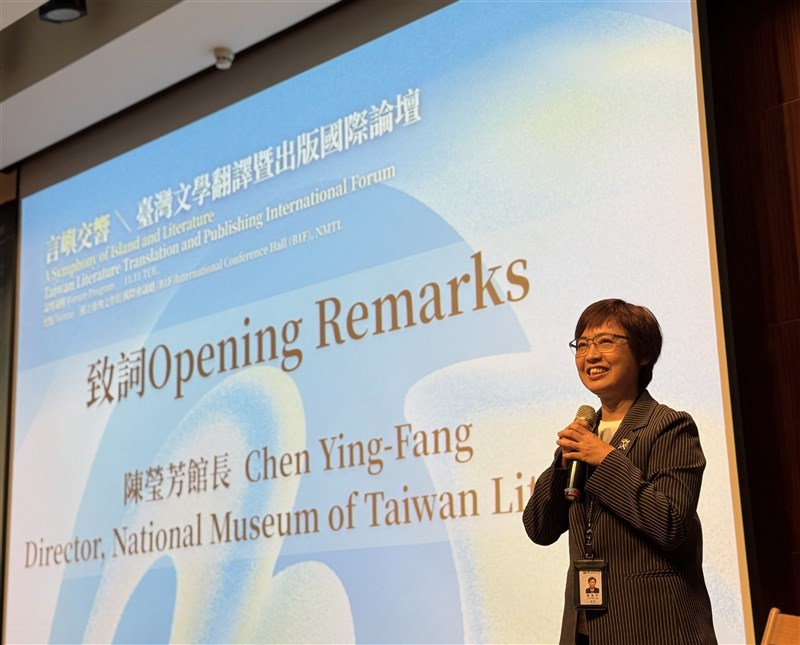Taiwanese literature gains ground overseas, faces challenges: Translators

Taipei, Nov. 11 (CNA) Taiwanese literature is gaining readers abroad, particularly in South Korea, but still struggles to sustain long-term momentum, translators said Tuesday, citing challenges such as limited funding, shrinking translator networks, and uneven exposure in foreign markets.
At the 2025 International Forum on Taiwan Literature Translation and Publishing in Tainan, Korean translator Kim Tae-sung said Taiwanese literature has made "remarkable progress" in South Korea in recent years, as far fewer works from China have been translated and published, prompting readers to turn to Taiwan's diverse, mature storytelling.
"In less than two years, the South Korean edition of 'Ghost Town' sold more than 30,000 copies," Kim said. "Taiwanese literature has become more sophisticated in theme and style, and its quality is what draws South Korean readers," he said.
"In Japan, Wu Ming-yi (吳明益) is the most popular Taiwanese author, and several of his works have even been reissued in pocket-sized editions," said veteran translator Etsuko Uozumi, who has long been dedicated to promoting Taiwan's Indigenous writing.
"It is rare for Taiwanese literature to be published in that format, which shows a growing readership despite the small scale of the market," she said.
However, Uozumi also highlighted the hurdles facing literature in Japan, particularly limited funding and a decline in translators, which she said have made it increasingly difficult to sustain the momentum of translated works in the country.
Meanwhile, Polish translator Maciej Artur Gaca said promoting Taiwanese literature overseas remains challenging if readers are not exposed to an author's name, noting that "continuity" is a benchmark of success in a small market.
"If the book is discussed in literary magazines, cited in universities, or translated from Polish into other languages, that's a real impact," added Gaca, a former Polish representative to Taiwan.
The forum gathered translators, editors, publishers and scholars from seven countries, including the United States, the United Kingdom and the Czech Republic.
It coincided with a literary translation workshop led by Singaporean translator Jeremy Tiang (程異) and Anna Goode, managing director of the British Centre for Literary Translation, held for the first time in Taiwan after four editions in the U.K.
Both events are part of the inaugural Taiwan Writers Festival, which runs through Nov. 30.
Chen Ying-fang (陳瑩芳), head of the National Museum of Taiwan Literature, the events' main organizer, said the festival was inspired by the strong reception of Taiwanese writers at international literary events.
"It is about time for Taiwan to have a writers' festival for our own authors," she said.
-
Society
2 freeway sections congest Saturday morning, 18 accidents reported
02/21/2026 03:00 PM -
Business
U.S. court ruling on Trump tariffs a stock-market plus: Analyst
02/21/2026 02:51 PM -
Society
Taiwan headline news
02/21/2026 01:21 PM -
Culture
From studio to hangars: Scale artist paints Army helicopters
02/21/2026 12:09 PM -
Society
Liyu Lake pedal boat operator released on bail after 9-year-old drowns
02/20/2026 08:12 PM